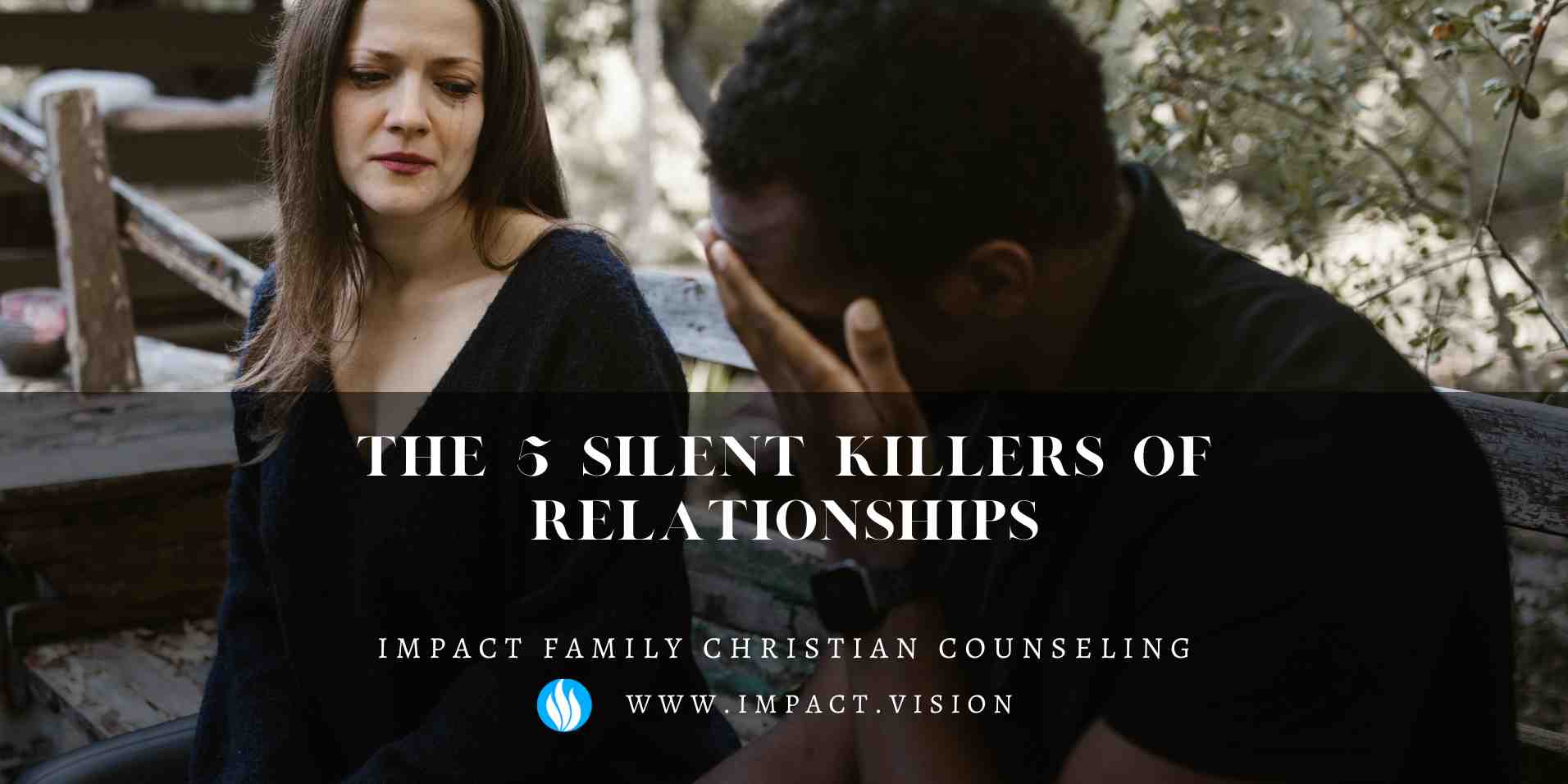Most people think that the biggest killers of relationships are infidelity, money problems, or the inability to agree on anything. While these things can be damaging, they’re not the only things that can ruin a relationship. There are five silent killers of relationships that often go unnoticed until it’s too late.
If you’re not careful, any one of these behaviors can slowly erode your relationship until it’s gone forever. So how do you avoid them? It starts with being aware of what they are and look like in your relationship. If you see any of these signs brewing, address them head-on before they have a chance to take hold. The health of your relationship depends on it!
1. Unresolved Trauma
Everybody carries some sort of baggage from their past that has persisted through various stages of life. If this baggage isn’t cleared before starting a relationship, it might have various negative effects. For instance, being emotionally hurt or bullied as a youngster might result in insecurity, poor self-confidence, and doubt as an adult. You may believe that the past should be left in the past and that it no longer applies to you and your relationship. Unresolved trauma, sadly, frequently has a significant negative impact on a couple’s life by constantly being triggered or brought up, which furthers the emotional distress in relationships.
2. Stonewalling

Everyone pulls away from a relationship at some point because they are hurt, unsupported, misunderstood, or afraid of saying the wrong thing. Since they are being attacked by unpleasant feelings and/or experiences, the fundamental goal of stonewalling is to defend oneself. You may have witnessed a child hiding in a ball under a table or in a corner after being ignored or dismissed. One can see the same thing in relationships. You only stop fighting for emotional connection as you get older, and eventually, you give up on the relationship.
3. Sexual Repression
The subject is frequently put on hold when one or both partners believe their sexual demands are not being addressed. Although there are many other causes for this emotion, frequent or infrequent sexual relations are frequently cited. Regardless of the justification, discussing one’s sexual unhappiness can be awkward for various reasons. For instance, the person experiencing repression might view discussing sex as inappropriate or “taboo,” be concerned about potentially offending the other person’s feelings, and so on. Despite this comprehensible reluctance, a problem needs to be fixed. The sexual intimacy of all relationships is crucial, and intimacy can deteriorate without a healthy sex life.
4. Tacit Disappointment
It’s difficult to express disappointment to a loved one. Unspoken displeasure in the other party can lead to the end of certain relationships. It can be agonizingly difficult to understand and express disappointments to another partner when one or both partners have become numb to even sensing disappointment in the other.
5. Inattentiveness and Invalidation

An example is when one partner expresses hurt over something the other did, and the other response with something that either doesn’t make sense or dismisses any perceived concerns by suggesting the other is overreacting or just plain wrong. If such interactions increase in frequency, one or both partners will likely remain silent, which is a direct descendant of futility.
Relationship specialists suggest a few actions prevent such communication issues from developing. Avoiding text messaging is the first piece of advice. The explanation is straightforward: body language and tone, two crucial components of effective communication, cannot be conveyed through text.
Impact Family Can Help You Build a Better Relationship
If you’re struggling in your relationship, don’t suffer in silence. Impact Family Christian Counseling Network can help you build a better relationship, starting with an initial consultation to assess your needs and goals. We offer individual, marriage, family, and even couples counseling for those ready to take their relationship to the next level. Call us today at (877) 237-8540 or visit our website to learn more about how we can help. Start your first intake session today.

